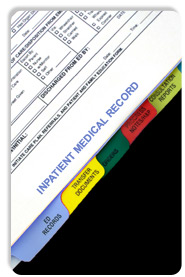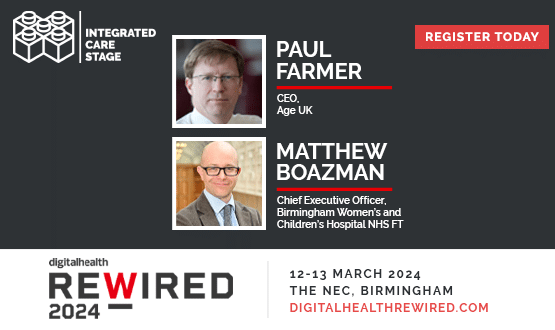Record makers
- 26 August 2010

As debate continues about the merits or otherwise of the national Summary Care Record, Graphnet has been holding a series of intimate meetings to show trusts what others have been doing to create a locally held detailed care record.
At one recent event at Bletchley Park, two primary care trusts from different strategic health authority areas gave their perspective on what detailed health records can do for the local health economy.
One of them, NHS Hampshire, is the largest PCT in the country. Last year, it decided to opt out of the SCR in favour of continuing to develop the Hampshire Health Record, a county wide record that provides 65% of Hampshire’s population with a detailed care record.
The system holds information including Read-coded data on allergies, medical history, operations and referrals, medications and test results, and it accepts feeds from almost all GP systems.
Dr Hugh Sanderson, clinical lead for the Hampshire Health Record, said: “The record has huge potential and is very exciting. We have 400-500 users at the moment, which has been doubling annually since we first began.”
According to Dr Sanderson, a recent evaluation showed that 90% of the 50 most active users said that they retrieved useful information from the record.
Building a record for Birmingham
Heart of Birmingham Teaching Primary Care Trust, decided to make a similar move in January 2009. It is beginning to aggregate information from existing systems across its healthcare community to present a single, integrated care record at the point of care, using Graphnet technology.
GPs and other care givers across Birmingham are using the system to gain access to radiology and pathology results as well as activity around A&E, inpatient and outpatient attendances.
Nigel Meehan, former senior ICT projects manager at Heart of Birmingham tPCT, said: “We decided that if we were going to move the services we had in acute hospitals into community, we were going to need similar access to what we have in acute settings and to combine primary and secondary care [information] in an easy to use, web-based system.”
Sandwell and West Birmingham Hospitals NHS Trust has led the way in sharing information with the tPCT, which already has 65 out of its 77 GP practices extracting information, covering 315,000 patients.
For example, staff in A&E have been given access to a detailed summary of the GP record that they can review before admitting patients. This means they can see medication, previous and current medical history, family history and GP results.
And staff in Birmingham City Hospital’s pharmacy department is using the system to access information about prescribed medication to help reconcile this with acute dispensed medication. “The pharmacy department has found this invaluable as they no longer need to contact the GP and find out what medication the patient is currently on,” explained Meehan, who is now a Graphnet project manager.
From sharing to analysing
Building on what has been achieved, Hampshire is now using the system to provide a sophisticated, pseudonymised, analytical database. Using patients’ encrypted NHS Number, sex, year of birth and current practice, the database is able to provide the PCT with information to improve commissioning and services.
Sanderson said: “We sat down with clinicians and commissioning managers and identified metrics around the initiation of care, complications, ongoing monitoring, and secondary costs and by creating dashboards we can drill down to more detailed parameters.
“We now have a clinical data repository that gets demographics from PDS [Personal Demographic Service], receives GP records overnight and receive hospital records from Southampton and Portsmouth.”
One of the examples Sanderson gave of the database in action was post operative wound infection rates. “Most surgeons don’t even know how many of their patients come back with an infection; now they can carry out clinical audits on these measures like these.”
However, data quality has been a big concern for both organisations. Sanderson acknowledged that some information doesn’t extract in right way, templates can be biased, and some results come back blank – but the key problem is that data is only as good as the systems that provide it.
“We haven’t adopted the SCR protocol of making certain data quality standards in the record before upload,” he said. “If the information is ambiguous or wrong there needs to be appropriate action.
“GPs need to find out more about the inaccuracy or discard it. There has always been a note on front of record that says that you must use clinical discretion and that information may be incomplete.” He added that incentives need to be provided to practices and trusts to get them to improve their data quality.
Obstacles to overcome
Sanderson also claimed that some system suppliers are not open to sharing data with others and that trusts taking systems under the National Programme for IT in the NHS are struggling to feed data into the system.
“We’re not covering 100% of our GP practices; coverage is actually going slightly backwards because some system suppliers are not all that interesting in sharing the data with anyone else,” he said.
Meanwhile, he claimed that “less and less information is coming from Winchester” as a result of the “black hole” caused by the implementation of Cerner Millennium system at Winchester and Eastleigh Healthcare NHS Trust.
Another consistently controversial issue has been the consent model around the detailed care record. No letters have been sent out to patients, instead leaflets and posters have been positioned in GP practices and local clinics in the hope that patients will see them and tell the patient manager if they wish to opt out.
Meehan adds: “At the time of launch, we were concerned about the confusion that it might bring by sending out letters, as we were also going ahead with SCR.
“The system has a built in consent model which means that patients are asked consent at the point of care when they are in front of the clinician and the result is recorded and audited.”
Consent remains a difficult issue for the SCR, and one that the government is revisiting. However, it is not the only problem. Concerns have also been raised about data quality and the uses to which the record will be put.
A recent evaluation by University College London found the SCR had delivered few of the benefits expected of it. Meanwhile, some health communities have been exploring alternative data sharing approaches, facilitated by system suppliers.
With the coalition government promising more localised systems and a wider choice of suppliers for NHS organisations, the work at NHS Hampshire and Birmingham Teaching Primary Care Trust could be a sign on things to come.
Meehan concluded: “The system remains the same in terms of the information accessed. It’s just that the process is more secure as the information is held locally.”




